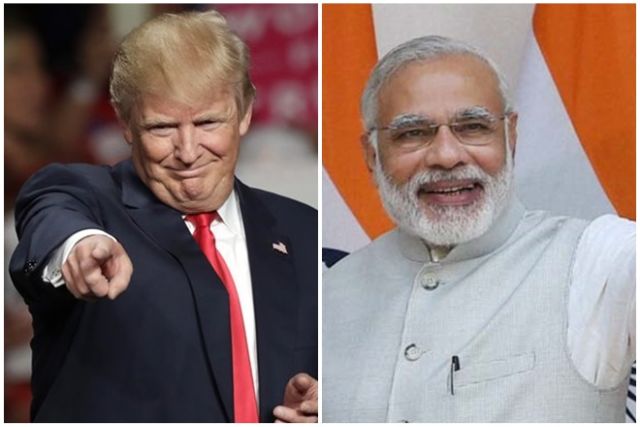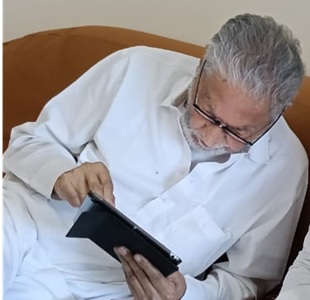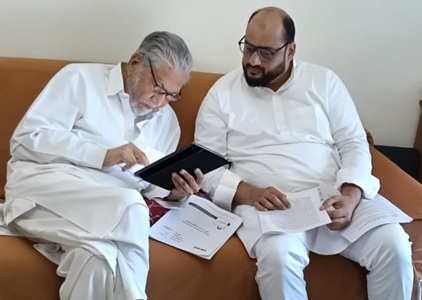As the economy slows, a pact will send the right message to investors, and change the narrative about India
During Prime Minister Narendra Modi’s visit to the United States (US) in September, in which President Donald Trump made a cameo appearance at the “Howdy Modi” event in Houston, the two leaders were expected to announce a trade deal. But, the two sides could not agree on the contours of such a deal before that landmark trip ended.
Media accounts suggested that, over subsequent weeks, New Delhi and Washington appeared to be near a trade deal several times. Nonetheless, as 2019 draws to a close, India and the US are still without a deal.
Two recent bilateral visits give hope, however, that the two countries might reach an agreement soon. In mid-November, India’s commerce and industries minister Piyush Goyal visited Washington to hold discussions with the US Trade Representative (USTR), Robert Lighthizer. And, subsequently, a USTR delegation was in India to continue the talks. Reports say that the two sides are nearing a breakthrough. At a time of general economic slowdown, a trade deal with the US in the waning days of the year would end the economic news for India on a high note.
It is worth noting that since India opened up its economy, the US-India bilateral trade has grown at a spectacular rate. The trade in goods increased from $5 billion in 1991 to nearly $88 billion last year. In 2018, India was America’s ninth largest goods export market. When trade in services is also included to the mix, the volume of bilateral trade last year was $142 billion.
This huge increase in the trade volume does not mean that the two countries were or are on the same page on every trade issue. The US continues to voice its long-standing concerns in primarily two areas: Lack of adequate market access and protection of US intellectual property rights in India. Over the years, India has listened to these concerns and has made concessions. The result is there for all to see: Last year, American companies exported goods exports worth $33.5 billion and services to the tune $25.2 billion to India.
The concerns about market access and intellectual property rights have never become wedge issues in the US, except during presidential election cycles. For example, President George W Bush imposed tariffs on Indian steel to woo voters in the critical battleground state of Ohio, ahead of his 2004 campaign. Not to be outdone, his challenger Senator John F Kerry vigorously went after the Indian outsourcing industry.
President Donald Trump has stated that he believes trade wars are good for the US economy. While trade disputes with Canada, Mexico and China have attracted most of the headlines, Trump has opened new battlefronts with a number of countries, including India.
In May, his administration escalated the disputes with India, when it ended Indian participation in the Generalized System of Preferences (GSP), which had allowed India to export a number of goods to the US at low tariffs for decades. In retaliation, India increased tariffs on 28 US goods.
In the latest rounds of talks, the two countries have reportedly agreed on tariff concessions on dozens of fruits and nuts products, and are close to a deal on medical devices. The major remaining challenge seems to be finding common ground on agricultural products.
This is because Trump is very sensitive about the loss suffered by famers in the US midwest, after China imposed huge tariffs on American agribusiness products as a retaliatory measure. With the midwest farmers critical to Trump’s re-election prospects, the White House has spent tens of billions of dollars in subsidy to those farmers to offset their losses. Getting concessions on agricultural products in a deal with India would resonate with this targeted constituency.
From the Indian side of the ledger, it is likely a good idea for India to yield an inch, a foot , and possibly even a yard , in the ongoing trade talks. New Delhi has more to gain than to lose .
First, it will help change the narrative about the economy. Most rating agencies have downgraded their growth projections for India for next year. A trade deal would reassure US and other foreign investors about India’s future economic prospects.
Second, the US-China trade war has forced many American companies to explore alternative options for manufacturing. For India to take advantage of this vacuum, it has to establish a more predictable trade environment.
Finally, a trade deal has become even more important after India’s decision to stay out of the Regional Comprehensive Economic Partnership (RCEP). The size of the economies of RCEP partners, in the aggregate, rivals the combined economies of the US and Europe.
It is in India’s interest to conclude the ongoing trade talks with the US productively. That does not mean giving away the store, but it does mean being flexible and keeping the larger economic story in mind.
As the axiom goes — and contrary to what the US President believes or says — there are no winners in a trade war. Similarly, a sound trade agreement has no losers.
Frank F Islam is an entrepreneur, civic leader, and thought leader based in Washington, DC. The views are expressed here are personal
Courtesy: This article first appeared in the Hindustan Times







0 Comments